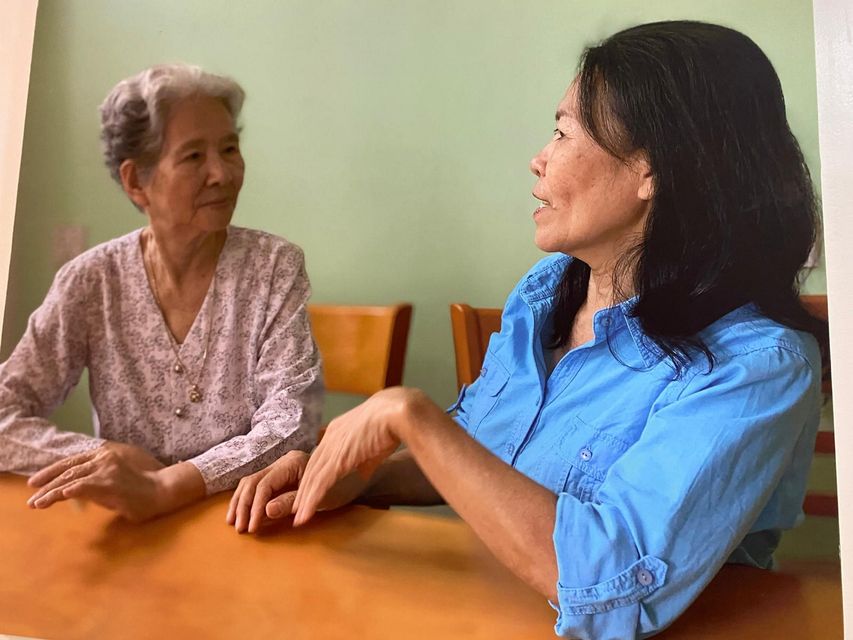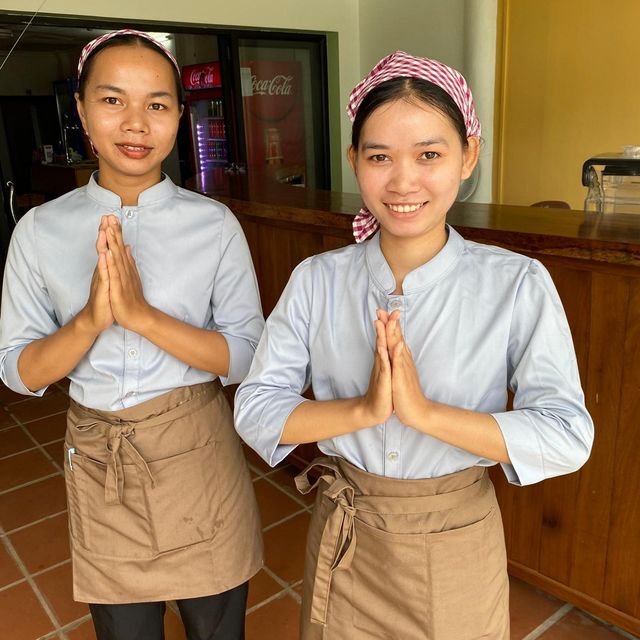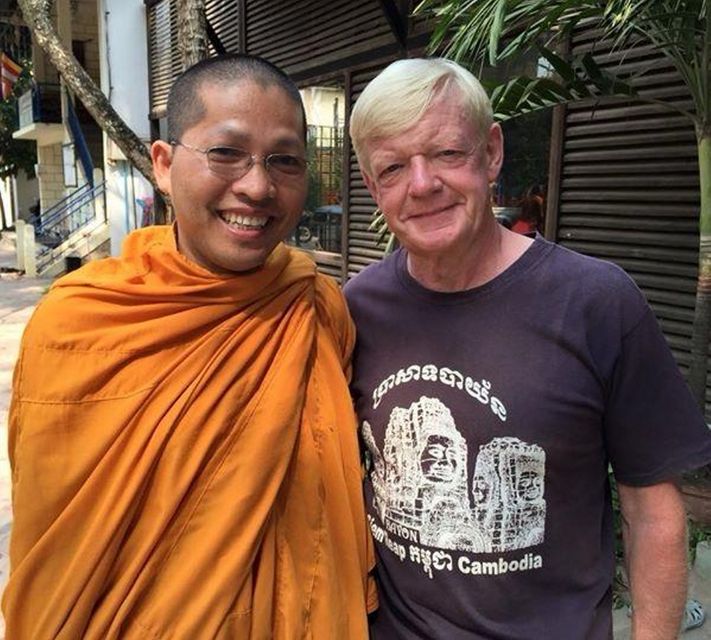Beneath the shadows of Angkor Wat, Antrim man Cecil Holmes has found purpose dedicating his days to empowering Cambodian women to rise above rural poverty through education.
The former secondary school teacher from Stranocum has spent the last seven years running a restaurant in Siem Reap alongside genocide survivor Tevy Moung, where they teach women from impoverished villages catering, finance management and English and Khmer literacy.
He sees his role primarily as supporting Tevy’s lead. He has “no financial interest in it” but has gained a “powerful sense of purpose”.
“The main focus is very much about empowering women. We help these young women from the villages who have no skills, no background and when they came to us first, they were actually frightened to speak to foreigners,” he says.
Read more
“Just last week, Tevy and I took one girl aside and we had to explain to her that she’s grown into a remarkable young woman, and she didn’t understand what we were talking about because they’re never told that at home.
“I wrote her skills out on a piece of paper and Tevy spoke to her and explained how much she has grown as a human being and as someone who can work.
“We don’t come at it with a sense of pity. These people don’t need pity, they just need an opportunity. They need that dignity and self-respect that any human being is entitled to. We treat them well, and we train them and give them these skills.”
Currently, 13 women are employed with Tevy’s Place and they are actively recruiting three more. They take a holistic approach to improving the lives of their staff, in a State that doesn’t always see them as a priority.
The latest UN Human Development Index showed the average number of years in school in Cambodia was five. This was part of the criteria that led the country to be ranked 148 out of 193 countries.
The country also ranks low on the Gender Inequality Index which shows one in every six women has “at least some secondary education”, compared to one in three men.
Cambodia and its education system is still recovering from the devastating reign of the Khmer Rouge, which took four members of Tevy’s family including her father. This period, 1975 to 1979, saw one in four Cambodians killed.
The Khmer Rouge demonised education to the point that teachers and anyone who wore glasses, assumed to be intellectuals, were among its main targets.
It was his drive to improve living standards through education that brought Cecil to Cambodia in the first place, but it was by chance that he would team up with Tevy.
Tevy and her mother survived the Khmer Rouge genocide. Today Tevy is a powerful ambassador for education in her community
“I spent 20 years teaching at a secondary school and then moved into the CCEA, the examinations body. Education is in my DNA.
“I always had the intention — or hope — that I might do something in another country where I could use my expertise. I had an opportunity to come to Cambodia to a remote village near Phnom Penh called Kampong Speu. It wasn’t planned, it was just by sheer chance.”
After spending two years in Cambodia, Cecil was invited by a monk to assist in providing an English language education service to impoverished girls and boys so they could go to school and university.
He spent seven years assisting with this service, working out of Wat Damnak temple, and spent his weekends in Phnom Penh where he eventually met Tevy and her mother.
“I saw a lot of my mother in them. The development of Ireland was similar to Cambodia in some ways, and my mother particularly worked herself to the bone to educate us as a family.
“They had a very difficult task, in coming through the Khmer Rouge period. Tevy lost her father, her mother lost her husband and three sisters. Tevy was very young, but she remembers it very clearly as does her mother.”
Phany and Sreyten, two of 13 Cambodian women who work in Tevy’s Place
Tevy and her mother ran a small business in Phnom Penh but the government took the building to use it for a library. According to Cecil, this left them with “no money, no home and no future”.
“It was at that time I met them and gave them a life opportunity that they might not otherwise have got. That doesn’t make me any different to you or anybody else. Had you been there, you’d have done the same.”
The education aspect of Tevy’s Place is supported by NGO See Beyond Borders, which supports communities to improve education in Cambodia. It recently used the restaurant to host its Teachers Inspire event to celebrate inspirational teachers in Cambodian public schools.
See Beyond Borders’ CEO of International Operations, Colm Byrne, who is based in Cambodia, said Tevy’s Place is a fantastic asset to the local area.
“They have a strong focus on gender equality and on quality education, which marries our own. I love the empowerment of Cambodians in Tevy’s place and the way the staff are treated. There’s just a fantastic atmosphere in there,” he said.
Tevy’s Place is now something of a “must-do” for many visiting Siem Reap, with its reputation going far beyond the borders of Cambodia.
Cecil with Monk Venerable Somnieng who he worked with teaching English to young impoverished Cambodians to improve their career and education prospects
“It’s not unusual for us to hear that people have been told on their way here, whether it’s Phnom Penh or Paris airport, that they must go to Tevy’s Place. It is just a well-known brand now in Siem Reap, but it is synonymous with community, and everybody sees that, and they know that’s what Tevy is about.”
Beyond his work with Tevy’s place, life in Cambodia has had a profound impact on Cecil, he says his experiences with locals and visitors have changed him “in many ways”.
“The people here, despite whatever material challenges they have, they’re happy people. Particularly when you compare it to the west, at the moment where things are a bit negative for all sorts of reasons, Asia and Cambodia in particular, remains a very positive place.
“I’m meeting people from different cultures every single day. The people who come into Tevy’s are the loveliest of people as well, and they’re always keen to chat about different things, whether it’s their own life philosophy or whatever. They’re very warm people, and they’re very non-judgmental. They just take me for who I am, and it’s a fabulous place to live.”


